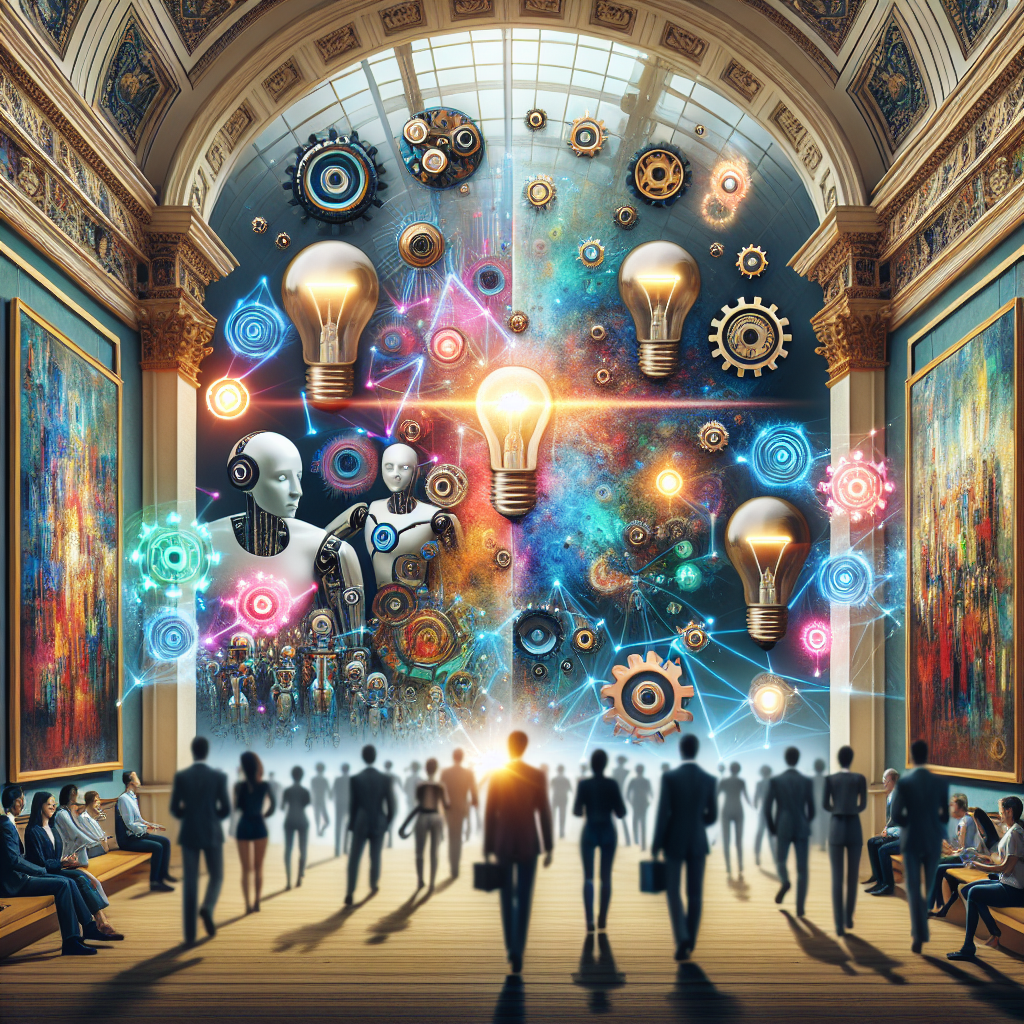The Art of Innovation: How AI is Inspiring New Ideas
Innovation has always been a critical driver of progress and success in a rapidly evolving world. From the wheel to the internet, humans have consistently pushed the boundaries of what is possible through creative thinking and ingenuity. And now, with the advent of artificial intelligence (AI), a whole new realm of possibilities is opening up for innovators in every field.
AI, in simple terms, refers to the ability of machines to perform tasks that typically require human intelligence. This includes things like learning, reasoning, problem-solving, perception, and natural language processing. The potential applications of AI are virtually limitless, and its impact on innovation is already being felt across a wide range of industries.
One of the key ways in which AI is inspiring new ideas is through its ability to analyze vast amounts of data quickly and accurately. This is particularly useful in fields like healthcare, finance, and marketing, where making sense of large datasets can be a daunting task for humans. AI algorithms can sift through mountains of information to identify patterns, trends, and insights that would be nearly impossible for humans to uncover on their own.
For example, in the healthcare industry, AI is being used to analyze medical imaging data to help doctors diagnose diseases like cancer more accurately and efficiently. By training AI models on thousands of images, researchers can teach machines to recognize subtle patterns and anomalies that might be missed by the human eye. This can lead to earlier detection of diseases and improved patient outcomes.
In the finance sector, AI is revolutionizing the way investment decisions are made. By analyzing market data in real-time, AI algorithms can identify potential investment opportunities and risks faster than human traders. This can help investors make more informed decisions and maximize their returns.
In marketing, AI is being used to personalize customer experiences and drive targeted advertising campaigns. By analyzing customer data and behavior, AI algorithms can predict what products or services a customer is likely to be interested in and deliver tailored recommendations. This can lead to higher conversion rates and increased customer satisfaction.
But AI is not just limited to specific industries – it is also driving innovation in more creative fields like art and design. For example, AI-powered tools like deep learning algorithms can generate unique pieces of artwork based on input from human artists. This collaboration between man and machine can lead to the creation of new and exciting art forms that would not be possible through traditional means.
In addition to helping generate new ideas, AI is also enabling innovators to bring those ideas to life more quickly and efficiently. For example, AI-powered prototyping tools can help designers and engineers create and test prototypes of products in a fraction of the time it would take using traditional methods. This rapid iteration process can help innovators identify flaws and optimize designs faster, ultimately speeding up the time to market.
AI is also fueling innovation through its ability to automate repetitive tasks and free up human workers to focus on more creative and strategic endeavors. By taking over mundane tasks like data entry, scheduling, and customer service, AI allows employees to spend more time on activities that require human ingenuity and problem-solving skills. This can lead to a more engaged and productive workforce, driving innovation across an organization.
FAQs
Q: Is AI capable of truly creative thinking, or is it just mimicking human intelligence?
A: While AI is not capable of true creativity in the same way that humans are, it can still generate novel and innovative ideas through its ability to analyze and process vast amounts of data. AI algorithms can identify patterns and connections that humans might overlook, leading to new insights and solutions to complex problems.
Q: How can AI help small businesses and startups innovate?
A: AI can level the playing field for small businesses and startups by providing access to powerful tools and resources that were once only available to large corporations. By leveraging AI-powered analytics, automation, and personalization tools, small businesses can streamline operations, reach new customers, and drive growth through innovation.
Q: Are there any ethical concerns surrounding the use of AI in innovation?
A: Yes, there are ethical considerations that must be taken into account when using AI in innovation. These include issues like bias in AI algorithms, data privacy, and the potential impact on jobs and society. Innovators must be mindful of these concerns and work to address them in their AI-powered solutions.
In conclusion, the art of innovation is being transformed by the power of AI. From analyzing data and generating new ideas to streamlining processes and empowering workers, AI is inspiring a new wave of creativity and ingenuity across industries. By embracing AI as a tool for innovation, organizations can unlock new possibilities and drive success in an increasingly competitive world.

